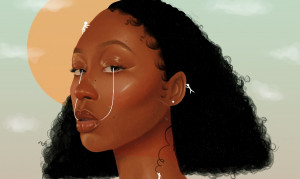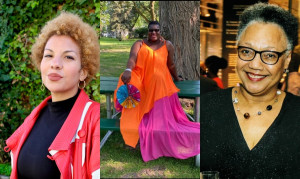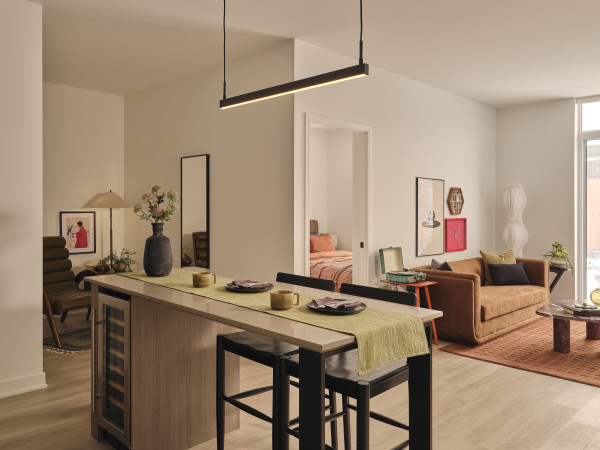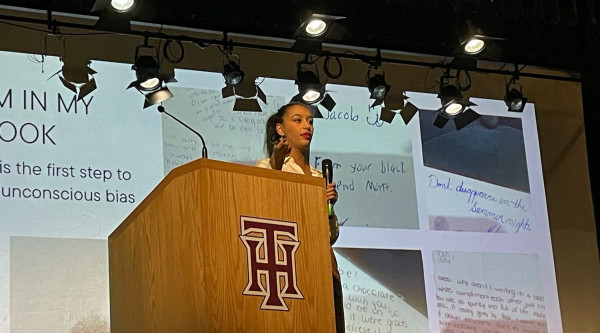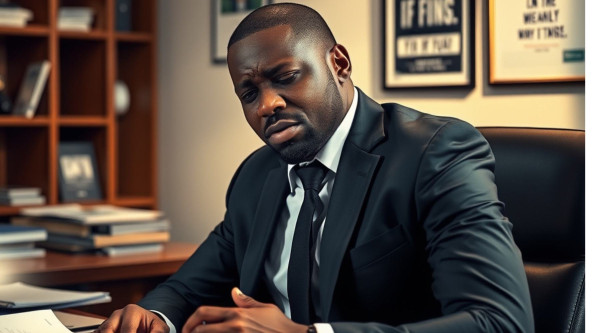I was introduced to Baldé via a video on Instagram. He smiles brightly while gliding across a frozen Lake Louise, doing hip-hop-inspired choreography before fearlessly launching into a flip, all to the backdrop of the snow-covered Rocky Mountains. It was stunning, the first word that came to mind was majestic. Not only was he sporting streetwear, but he also performed to a Drake song I could find in my own music library. Everything about the experience felt very different and that’s exactly the point.
Many people remark in the comments of his posts about how happy and free Baldé looks as he’s skating, and he wants all people to be able to experience that same level of freedom and joy. The rigid expectations of the figure skating world, in terms of what skaters looked like and how they skated, drove a wedge between Baldé and the sport. That and failing to qualify for the Olympics caused him to question his identity. He’s also had to shrug off the stereotypes that told him figure skating isn’t “a manly sport.” And certainly no place for a Black man.
Despite all that, Baldé had a decorated 21-year competitive skating career. He won many titles, including the junior title at the 2008 Canadian Championships and finished fourth at the Canadian Championships in 2012.
I spoke to Baldé in April, and we talked about the racism and elitism that exists in figure skating, a trip he took to Africa that changed his life, his relationship with the sport and much more.
The first time I saw a video of you skating, it made me think of hiplet, the hip-hop and ballet fusion, how would you describe your style of skating?
I love being versatile. I love trying different ways of moving and different ways of conveying a message or ways of sharing a story through body movement. I would say that my style is a mix of jazz, ballet, hip hop. Basically, I'm trying to create my own style by taking pieces of every style, like I’m creating a soup of moving. I'm not a technically trained dancer. Yes, I did ballet, I did a bit of hip hop, I did a bit of jazz, and a bit of some other stuff but I'm not trained in any of it. So I can't claim that I'm contemporary or that I'm hip hop or ballet or whatever. I'm just kind of making my own way of moving on the ice and I think that's what people have been connecting with. That it doesn't look like traditional figure skating and I think that's where my style is based.
Your mother was a figure skater, you started skating and within a year you started competing. I read that sometimes you would hide your skates so that you didn't have to practice. So I'm curious about what your relationship to the sport has been like?
My mom has always been passionate about the sport. My older sister, who passed away at the age of seven, was the first figure skater out of the four kids. She was extremely passionate about it. When I was around six years old, my mom started taking me to outdoor rinks just for fun and I loved it. I remember getting super comfortable on the ice very fast. My mom saw that and saw the potential, so right away she put me in private lessons with a Russian coach and that got serious very fast. So I would say my relationship started very rocky because I was having fun playing in school but then it was like, “Okay, now it's time to be serious.” In Russian culture, if you're going to be an athlete and your goal is not to be the best, then you're wasting your time.
So that being ingrained and conditioned and downloaded in my brain right away at the age of six was very heavy, and I didn't necessarily enjoy that aspect. I remember the first competition that I competed at, we arrived at the rink, and there was no one there so we thought we missed the competition. And I was stoked. I was like, “Yes! I get to go home, I don't have to compete, this is great.” Then we realized we actually came way too early, so I still had to compete. So that's my relationship with skating.
{https://www.instagram.com/p/CSNMwk0hwsx/}
It was six months of skating and then all of a sudden, I’m at my first competition. I finished last, I didn't even know what I was doing, and it wasn't a pleasant experience. So, for the next few years after that because of how intense it got, I tried everything not to skate. I’m very glad and grateful that my mom persevered through that because she had to deal with a lot to be able to keep me skating. Then I started developing a passion for jumping, the athletic side of figure skating. I really enjoyed landing new jumps. I was 10 and was already doing two different triples, and kids my age weren’t doing that. I started seeing that not only that I have potential and talent but I also enjoyed the feeling of conquering a new jump and that became the driving force.
Now what fulfills me is the connection I get to create with the ice, with myself, with movement, with music and the moment. That opportunity to be creative and be vulnerable, and share whatever I want to share. That's the space that fulfills me the most now which is completely different from if you think about the athlete’s perspective. Throughout the years and through self-reflection, it’s led me to make a shift and really focus on wanting to be an artist and a performer. Honestly, up until last December, had never truly played on the ice. It's almost like I went full circle and I'm back to that moment where I was six years old and skating is just fun. When I started making these videos, is when I found complete freedom and I was able to be on the ice and literally just play again.
Take me back to when you were competing: you're getting ready for a competition, you're working with choreographers and coaches about what you'd like your routine to look like, what were those conversations like?
That's a really important question. For the longest time, in a sport that has a predominantly white, European, elitist kind of environment, I definitely struggled for a long time in terms of finding myself as a figure skater and as an artist. When I was around 13 or 14, I started really wanting to do things differently and I was lucky enough to have a coach that nurtured that. He allowed me to explore being different on the ice.
At that point, I was getting signs from Team Quebec and Team Canada, that I shouldn't be skating to certain kinds of music or I should cut my hair because I was growing an afro and it’s not clean, judges won’t like it. I started getting resistance from people above us and all of those things were based on the things that were Black about me. There was always this conversation that when I was diving into the Russian side of me, everyone was happy, everyone loved it. But I went in another direction, into my African roots, there was resistance there. I think that's something that a lack of representation really played a massive role in me not being able to identify with someone that looked like me that I could emulate that I could be inspired by.
That forced me to learn how to code-switch, and it forced me to change the way I looked, what I wore, the kind of music I listened to. It basically forced me to change all of that subconsciously. These were not conscious decisions but everything was pushing me towards being more that and that wasn't authentic to who I was. It wasn't until I saw this incredible skater, Maxime-Billy Fortin, he was of Haitian descent and he was adopted. It was the first time I saw a Black male figure skater in person, and it blew my mind. It completely shifted the way I perceived myself and the sport because he was doing things that no one had ever done. And he was doing it in a way that was so powerful and had so much presence on the ice. That's when I started not really caring anymore about if this was right or not, I wanted to do it the way that I wanted to do it. It takes a while to rewire 15 years of conditioning but that's where my journey of wanting to be authentic started.
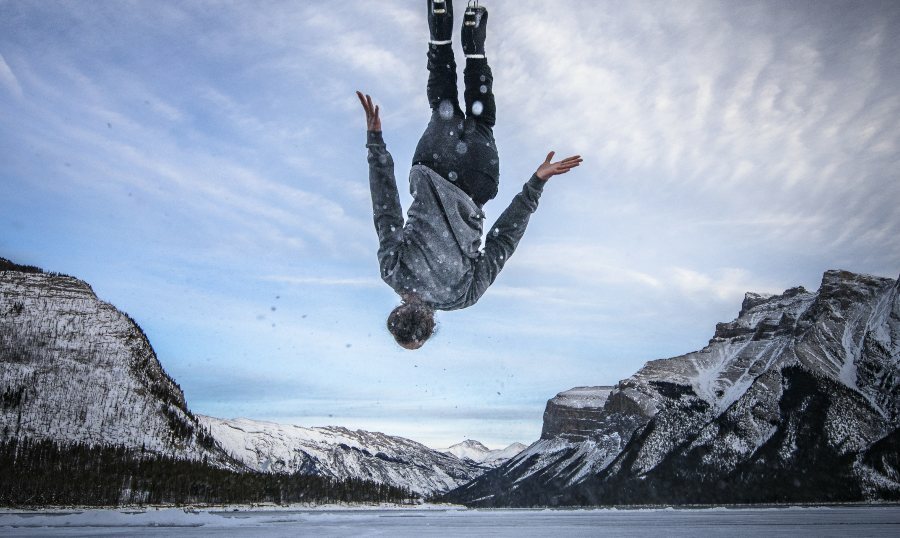
(PHOTO CREDIT: Kris Andres)
In an interview with the Guardian, you said that the switch and emphasis from the artistic side to the more technical side in figure skating, left you feeling isolated from both the sport and from yourself. How did you go about reestablishing both those connections?
I had to go through a deep, internal shift. Because of my culture and conditioning plus being in a subjective sport where you're being adjudicated for everything and your results are in the hands of someone else deciding whether you are worthy of a certain score.
I envisioned myself as an Olympic champion from a young age. That's who I was and I put my entire self-worth and identity into being this champion. Then I had a really terrible competition and I started realizing that this might not be my path, I might not be an Olympic champion. So, then I started questioning everything in terms of who am I if not this person I created in my head, what’s left, why am I even doing this right now? I started really diving into what makes me, me and why do I love the sport, and what would it look like for me to skate authentically?
There was a point where I decided I wasn't going to skate until I found a reason to escape that came from within and not external reasons. I went to Africa with my dad, and that truly changed my life in so many ways. I truly felt like I reconnected to my roots or reconnected to my humanity and nature. It really shifted my priorities as to what’s bringing me fulfillment, which is connecting to myself when I'm performing, connecting to music, and connecting to an audience. Yes, there are judges but everyone’s a human being, so, I started seeing them as human beings. So, if I can make someone feel something, whether you're a judge or a spectator, you will feel it.
Maybe this is just wild speculation but it's almost like you started seeing yourself as more of a performer and less of a competitor.
Yep, then my performances and my results just skyrocketed. I started winning international competitions, I was in the best shape of my life and it was because I was operating from a different space. A space that allowed me to be more myself and that really changed my experience.
In a post from last year, you wrote “African, Russian, immigrant, Black male, figure skater, every time I step on the ice, I'm a living, breathing protest to a society as well as a sport that thrives on oppression, and elitism.” Tell me about the elitism and the racism that you experienced in the skating world?
First of all, on an economic level, skating is an extremely expensive sport to be in at the level that I was. If you want to be competitive, you're spending between $40,000 to $60,000 a year. Maybe $15,000-$30,000 when you’re younger but still, a lot of parents don't have that kind of money to just be spending on a sport. That fact alone creates a certain type of person that's in that sport. And I'm talking about North America because in Europe it works differently.
So that creates people that are in the sport who are entitled and privileged, that live in a space of “I am better than you.” Especially because it's a subjective sport that’s judged, that fuels people's nature for wanting to be the one that people look at. And in order to be successful, you have to be part of that club, you have to look a certain way, you have to be a certain way, you have to present yourself a certain way. Growing up, my parents being immigrants, we didn't grow up with money. We had everything that we needed, but we didn't have money like that. So, being in that sport I was constantly reminded, and not necessarily by people. Although there were moments where people look at what I was wearing and laugh, you know, the typical type of discrimination that you might experience if you're an immigrant or poor or Black.
But unconsciously, the way people are acting tells you a lot, you're downloading a lot in that space. That always made me and my sisters understand that we don't necessarily belong in that space because of where we are from a financial standpoint. Now, from a race standpoint, everybody around you is rich and white, so in the space that you're constantly in, you're always looked at differently. For me, I was a very powerful jumper and I was a good skater. People always refer to me being Russian and they would say, “You're Russian, so you're a good skater,” and to them, that's the only reason I was a good skater. Then the only reason I was a powerful jumper was because I was Black and that was the only association to me being Black that was accepted in that space. Everything else was, “Oh, you're different. You're not like other Black people.” Or because the things I would wear on the ice were a little baggy, because that’s just what I liked to wear, that was 'ghetto'. A lot of that comes from unconscious behaviours but you interpret that in a certain way and you internalize it.
I feel like me being successful in this sport, looking the way that I look and doing it the way that I'm doing it, is going against what figure skating believes their people should look like. So, for me to walk into that space, especially now having been given the platform that I have and the level of success that I'm experiencing now when I say it's a walking protest, I’m saying, everything that I'm doing is not what people would refer to as a successful figure skater but here I am.
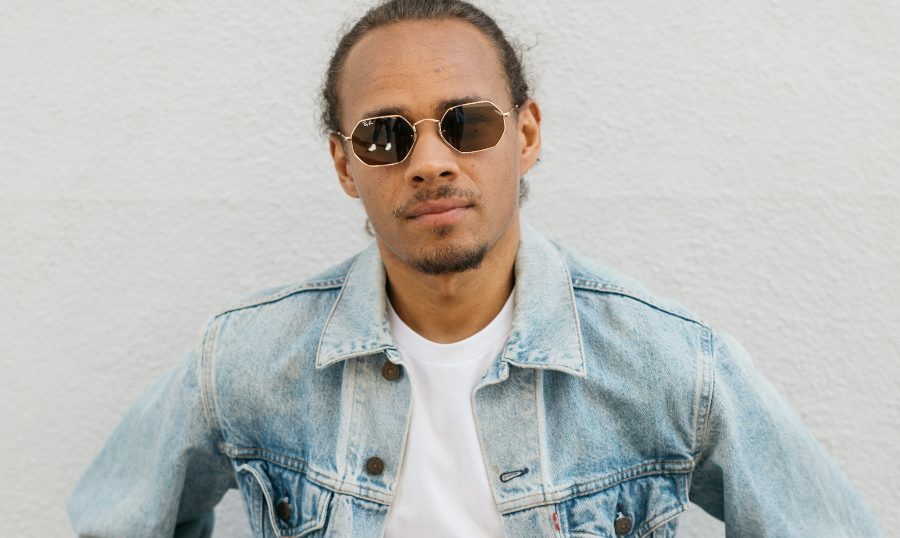
(PHOTO CREDIT: Nicole Shabada)
I remember reading that comment about your talent coming from you being Russian and being Black and it really upset me.
People would say that because I didn't have the right posture, I was referred to as a monkey skater. Because I had long arms and my posture was a bit slouchy, they would laugh and say, “You look like a monkey."
What?! Wow. I'm sorry that you had to go through that, that is awful. In brighter news, you have hundreds of thousands of followers on Instagram and on Tik Tok. As you've talked about, you're the freest that you've ever been and you're able to create in a way that you haven't been able to do before. What has it been like operating on these platforms for the past couple of months and what has it been like to collaborate with your fiance?
Honestly, it's been the most fulfilling time in my life. Again, it's the sense of freedom that I've never experienced within the figure skating world because you're always taught to be a certain way. So, to have this opportunity to now really be as authentic as I can and to inspire others to do that too, to embrace the things that are unique about them and to continue to dive into that is one of the most fulfilling things that I could do; now I'm realizing my purpose. Through my skating I can shift perspectives, I can share a message while doing what I love to do. Through this vehicle, I can share a message that will inspire 1000s, hopefully, hundreds of thousands, but even if it’s just one person, it doesn’t matter. If that can happen, I think it’s incredibly powerful.
With Michelle, to be able to work with her and for us to have the same approach and the same intention behind what we do, is incredible. She's extremely creative in her own ways and she doesn't have that lens of a figure skater, so she doesn't create within the figure skating boundaries. This is huge because then I can then translate that to a skating movement and we get to create something that you don't see on the ice which I think has been extremely fun for us to be able to explore. We love working together and I want to say that she's really held space for me to step into this role. She created space for me to believe in myself and I'm so deeply grateful for that because I wouldn't be doing what I'm doing now if it wasn't for our relationship. I truly think we found this little gem that we get to play with now and it's been truly incredible.
As for the platform, I feel like I’ve been given this space where I can inspire young Black, Indigenous and People of Colour to be themselves. And if they are in the figure skating world, hopefully, I can inspire them to be themselves and not conform to what skating tells you you need to be or how you need to do it. And hopefully, that'll change what skating looks like, physically in terms of colour but also what it looks like in terms of when you're experiencing it as an art form. I think that's my biggest mission right now.
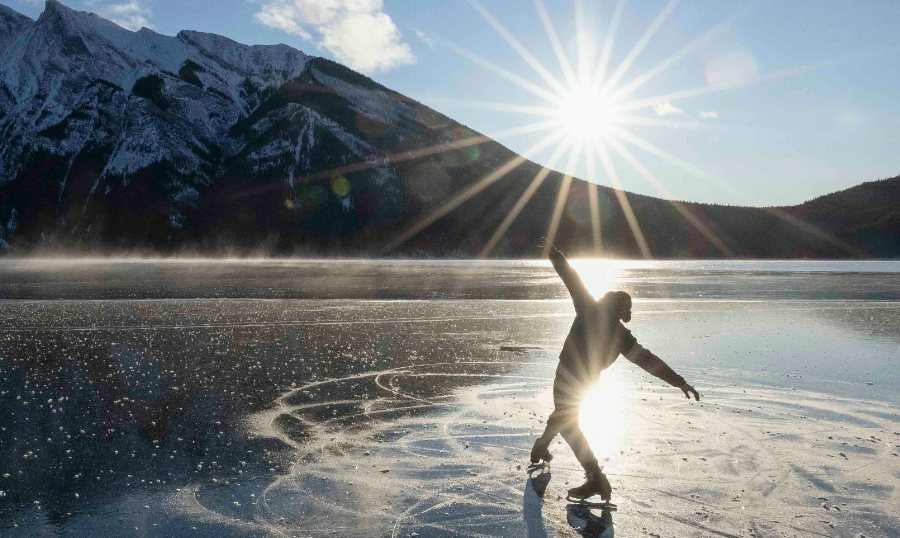
(PHOTO CREDIT: Paul Zizka)
You don’t even have to be a figure skater to take that advice. You don’t have to conform to anything, you can figure out what makes you unique. It’s interesting because you’re a figure skater but you're also a social media influencer, which sometimes has a negative connotation in my head but you’re one of the good ones!
You bring up such a good point, if there isn't a lane for you to walk on then create one. Don't just choose one because society or people tell you to choose a path. If you're able to embrace your gifts and find a way to share that with the world, you're gonna create your own path. That’s a really powerful message that changed my life and I truly think that within that space, there's so much that can be shared and that’s powerful.
What is something that you've learned about yourself or about the world during the last 14 months?
The pandemic really changed my life in so many ways. The opportunity that showed up for me was like, “Okay, your normal doesn't exist anymore. So what now? What can you create, what else can you do, how else can you find creative ways to do what you want to do?” And through that journey, potentially, then find your real purpose. If it wasn't for COVID-19, I wouldn't be in the situation that I am now because I would still be touring, I would still be at the mercy of production companies hiring me for shows, I would still be at the mercy of other people having control over my art.
So now, because of the pandemic, I had to find a different way to do what I do. I've empowered myself to have control over it now and really shaped my life in the way that I want. There's so much darkness and so much suffering that came with this pandemic but on another side, I think it allowed a lot of us to read, to dive deeper into what can we shift in our lives in order to take something out of this and actually grow as a human being and in my career. For me, it was an incredible opportunity to practice.
I talked to one of my friends who figure skates to help me prepare for this interview and she noticed that you use hockey skate laces in your figure skates, is there any significance behind that decision?
Again, it’s about disrupting just the norm. People that go to public skating will see that all guys wear hockey skates and all girls wear figure skates, why is that? You don't see figure skaters with hockey laces on, you don't see a black boot with white laces but why not? People from the figure skating world would know that in the hockey world, we move in the same space but there’s still this shame I felt and a lot of the bullying I experienced, the people who made fun of me for being a boy figure skater, were hockey players. You know, telling me I'm doing a girl’s sport or telling me that I'm gay or calling me names. Within this world, there were a lot of things like that that were painful.
I think by wearing hockey laces, I'm trying to introduce the sport in a different way. I'm trying to modernize the sport, trying to have people who are not necessarily interested in skating to say, “Oh, what you're doing is dope. Actually, I enjoy figure skating.” I think that with all these things that I’ve experienced in my life, that's why I wouldn't change anything because it brought me to who I am now and the path that I'm on. I'm skating and wanting to shift the perspective that people have on figure skating. So, that's why I have the white laces on, to present myself in a way that's different.
You posted a beautiful picture on Instagram of you doing a backflip with the caption “What's next?” What do you have planned next for your life and your career?
Obviously, I'm continuing to create and make videos, to inspire and share my art and share my gift with people. I'm working with different organizations. I co-founded Figure Skating Diversity & Inclusion Alliance to work on increasing representation, helping BIPOC skaters in the sport with equipment, scholarships, mentoring, whatever it is that they need in order to be successful, whatever success means to them. I am working on fun projects that I can't disclose yet, but I'm constantly trying to put skating in places that you haven't seen skating before like the Cartoon Network thing. That was really cool and that's a perfect example, you'd never expect to see that but hey, why not? Let's do it. That’s super exciting to me.
I eventually would love to have my own show and really create an experience that when people come to watch it, it will be something that people will remember and will want to come back to. That's one of my bigger goals. But for now, we're continuing to work on putting skating in different environments and using that to inspire others.
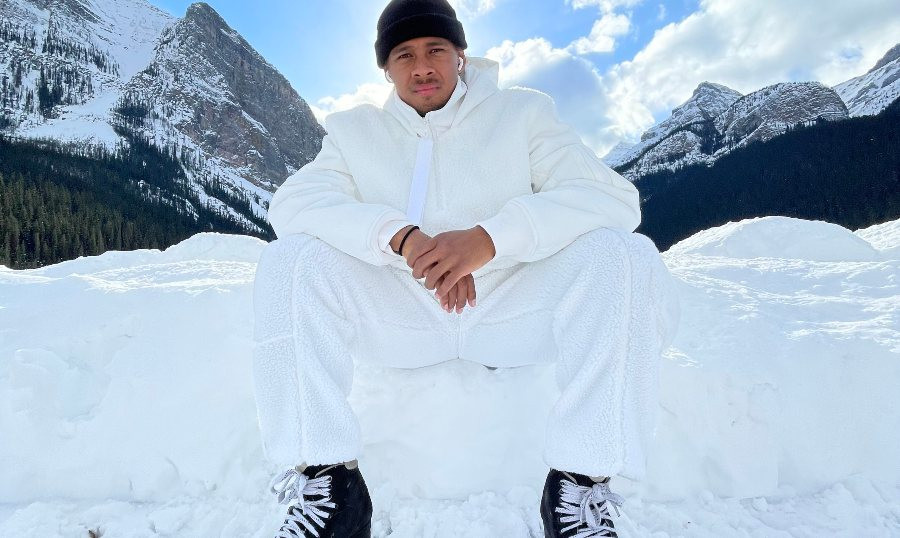
 By
By 




